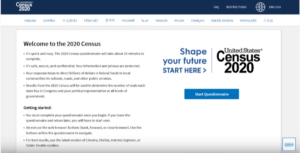Elderly Women Hit by Poverty More Often Than Men
An analysis of recently released census data finds a disconcerting difference in poverty levels between men and women -- particularly those over age 65 -- and unconscionably high levels for women of color. More than one in three Native American women live below the federal poverty line.
More than one in 10 women over the age of 65 in the United States was mired in poverty last year, and among those living alone, the rate jumped to two in 10, according to an analysis of new census data by the National Women’s Law Center.
Overall, women live in poverty at much higher rates than white non-Hispanic men (7.7 percent), and the rates were stunningly high among women of color: 34.4 percent for Native American women, 25.1 percent for African-American women and 24.8 percent for Latinas. Across all racial groups, the poverty rate for women was 14.5 percent, significantly higher than the 11 percent for men.
Beyond the drag created by joblessness, employed women last year earned on average 77 cents for every dollar a man was paid for similar work, the NWLC says. The good news (good being a relative term): That wasn’t any worse than the previous year.
Note that poverty is a rather stingy definition. For a single person, the federal threshold is an annual income of $11,490 per year. And efforts by House Republicans to slash the Supplemental Nutritional Assistance Program, which most of us know as food stamps, would make life even more difficult for those at the bottom of the economic ladder. According to the NWLC:
NWLC’s detailed gender analysis of U.S. Census poverty, income, and health insurance data released on September 17, 2013 found that poverty rates among women, like poverty rates overall, remained at historically high levels last year. Women’s poverty rates were once again substantially above the poverty rates for men. The data also show that income supports such as Food Stamps/SNAP benefits kept millions of Americans out of poverty last year. The wage gap remained unchanged in 2012, with women working full time, year round typically earning 77 cents to every dollar paid to their male counterparts – the same level at which they have remained for a decade.
Significantly more than half of children living in poverty were part of female-led single-parent homes, the report said.
Researchers at the Brookings Institute warned last year that poverty levels — particularly for those in demographic groups at higher risk — will remain stubbornly high:
By 2020, the poverty rate is expected to decline to around 14 percent, but our analysis suggests it will be many years before it returns to anything approaching the rate achieved before the recession began. With cuts in social spending for lower-income families slated to occur over the next decade, the outlook for the poor looks grim.
These increases in poverty are driven primarily by high unemployment rates. These are the primary drivers in our model, which is estimated using historical data and unemployment projections from CBO, OMB, and the Economist Intelligence Unit for future years.[2] When unemployment rates are high, some people fall into poverty as the result of losing a job. Others fail to climb out because of the difficulty of finding work. Unemployment insurance has played an important role in cushioning drops in income. The Supplemental Nutrition Assistance Program (SNAP, formerly Food Stamps), which does not affect official poverty rates but does affect a broader measure of poverty, has also helped the unemployed weather the recession. These programs will almost certainly shrink in 2013 and beyond – further exacerbating the problem of insufficient resources for those at the bottom.
The congressional response? To paraphrase British songwriter Billy Bragg, all we get are the sounds of ideologies clashing. And, among House Republicans, delusional efforts to blame others for the looming government shutdown, according to Roger Simon at Politico:
House Majority Leader Eric Cantor (R-Va.) leaves the floor of the House in the wee hours of Sunday morning, having taken action that will probably shut down the government, and releases a statement saying, “It’s time for President Obama to rise above stubborn partisanship.”
Which is like an arsonist telling others not to play with matches.
—Posted by Scott Martelle
.
Your support matters…Independent journalism is under threat and overshadowed by heavily funded mainstream media.
You can help level the playing field. Become a member.
Your tax-deductible contribution keeps us digging beneath the headlines to give you thought-provoking, investigative reporting and analysis that unearths what's really happening- without compromise.
Give today to support our courageous, independent journalists.





You need to be a supporter to comment.
There are currently no responses to this article.
Be the first to respond.